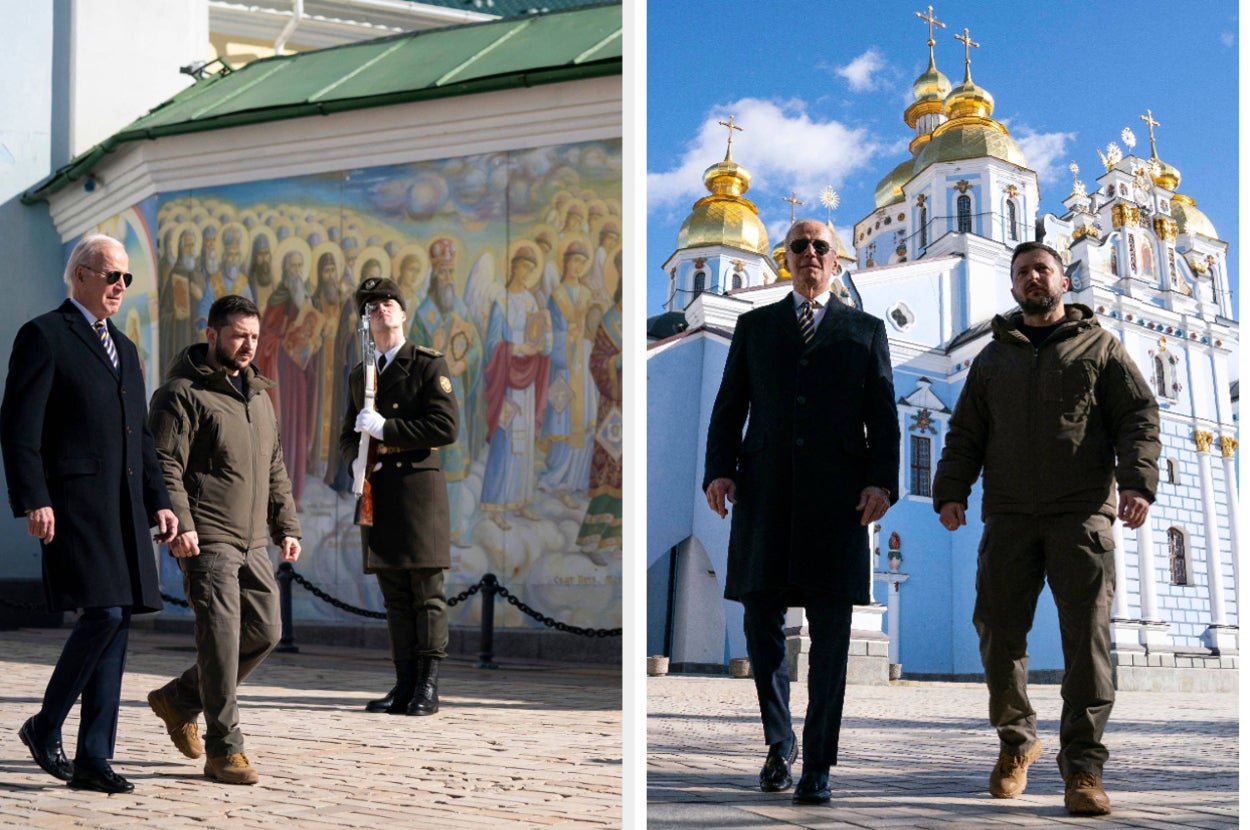In an event that was meticulously planned with an eye for high security and confidentiality, U.S. President Joe Biden embarked on a surprise visit to Kyiv, Ukraine. This visit, which took place on a Monday, was notably distinguished by both its secrecy and its significance as the U.S. pledged ongoing support for Ukraine amid its conflict with Russia.
President Biden’s journey was not a short or simple one. Departing under the veil of secrecy, he undertook a 10-hour train ride traversing through Ukraine to reach the capital city, Kyiv. This method of travel was chosen for both security reasons and as a symbolic gesture of solidarity with the Ukrainian people.
The timing of Biden’s visit was particularly poignant, planned to coincide with the forthcoming first anniversary of Russia’s aggressive and devastating invasion of Ukraine. During his time in Kyiv, President Biden, alongside Ukrainian President Volodymyr Zelensky, toured significant sites within the capital. The visit underscored a clear message of resilience and unity in the face of adversity.
At a joint press conference held outside the prestigious presidential residence in Kyiv, President Biden delivered a powerful declaration to the international community and the people of Ukraine. “One year later, Kyiv stands. And Ukraine stands. Democracy stands,” he proclaimed, emphasizing the survival and persistence of Ukraine despite ongoing military aggression from Russia.
During this high-profile visit, Biden’s agenda included not only symbolic gestures but also concrete pledges of support. He announced a substantial aid package, committing an additional half a billion dollars to Ukraine’s military efforts. This funding was earmarked for several critical areas including long-range weapons systems and ammunition, which are vital for Ukraine as it continues to defend its sovereignty and territorial integrity.
The U.S. support for Ukraine, both in terms of military aid and diplomatic backing, signals a clear stance by the Biden administration. It reaffirms a commitment to uphold democratic values and international law, projecting a message of unwavering support and solidarity. As the war in Ukraine persists, the importance of such international alliances and support structures cannot be overstated.
The intricacies involved in planning Biden’s visit were profound. The decision to travel by train across Ukraine, the choice of sites to visit, and the engagements with Ukrainian leadership all had to be coordinated with utmost attention to detail and security. Each element of the visit was carefully orchestrated to maximize its impact both visually and politically, ensuring that the message of solidarity and resilience was clearly communicated.
President Biden’s unexpected presence in Kyiv on that Monday not only marked a significant diplomatic outreach but also a personal testament to his commitment to standing with Ukraine at a critical juncture in its history. As global tensions continue and the geopolitical landscape evolves, such demonstrations of support and unity are pivotal. They serve not just to bolster the recipient nation but also to send a broader message about international norms, cooperation, and the defense of democratic ideals.
In conclusion, President Joe Biden’s unannounced trip to Kyiv symbolizes a significant moment in international relations and a reaffirmation of U.S. support for Ukraine. This strategic move, dense with diplomatic, symbolic, and practical implications, further compounds the international response to the crisis in Ukraine. As global observers and other nations watch how the conflict and alliances evolve, the endurance of democracy and international solidarity remains at the forefront of discussions, underscored dramatically by such high-level engagements.









